Edition: 26 February to 8 March 2024
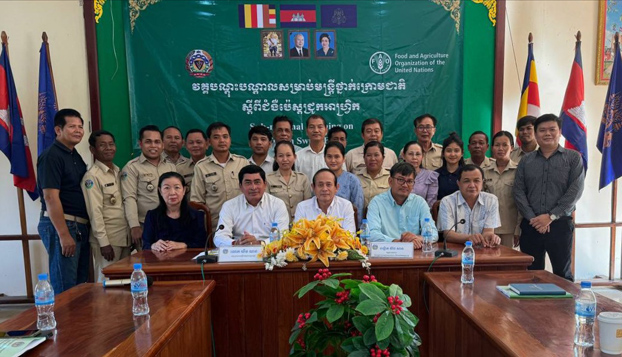 ©GDAHP | CAMBODIA ASF sub-national training in Kompong Speu
FAO and the General Directorate of Animal Health and Production (GDAHP) co-facilitated a two-day ASF sub-national training from 26 27 February 2024, at the Kompong Speu Provincial Department of Agriculture, Forestry and Fisheries. With support from the Ministry of Agriculture, Food and Rural Affairs of Republic of Korea, the training equipped the capacities of provincial and district veterinarians in recognizing ASF clinical signs, conducting laboratory diagnostics, identifying risk pathways and vulnerable populations, and implementing effective animal movement restrictions and containment measures for emergency response. |
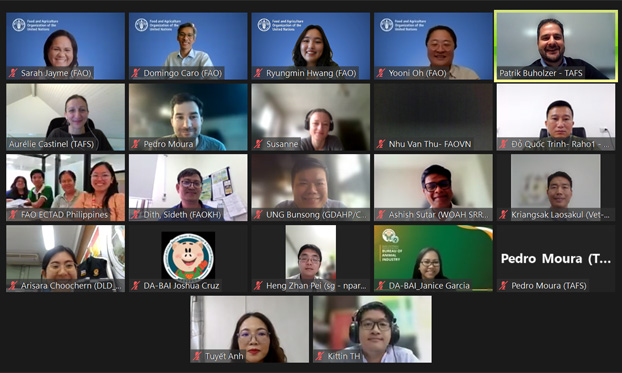 ©FAO | ASIA AND THE PACIFIC ASF private-public partnership discussed Stakeholders from public and private sectors recently convened to discuss developing an ASF information exchange platform. The meeting on 27 February 2024 included representatives from eight Member Nations in Southeast Asia, the World Organization for Animal Health (WOAH) and FAO. Participants were briefed on the platform’s background and its role in promoting private-public partnerships. Participants were also briefed on the preliminary findings of key informant interviews and an online survey to probe what the platform should focus on. The Trust for Animals and Food Safety (TAFS) forum, with support from the United States of America's Defense Threat Reduction Agency (DTRA), is helping FAO in establishing the platform. |
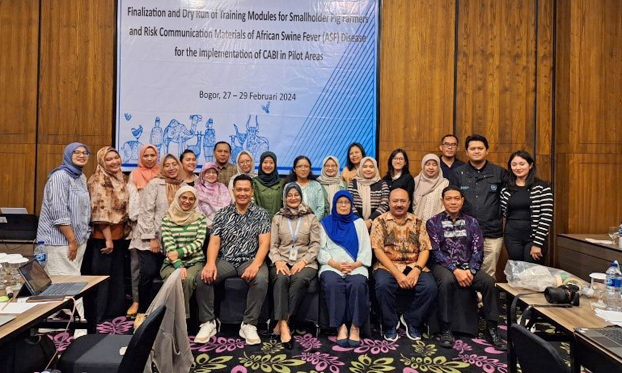 ©FAO/Saskia Soedarjo | INDONESIA Finalizing ASF Biosecurity training modules and risk communication From 27 to 29 February 2024, FAO, in collaboration with the Indonesian Ministry of Agriculture (MoA), held a meeting to finalize training modules and risk communication materials for smallholder pig farmers in North Sulawesi and West Kalimantan provinces, as part of the Community ASF Biosecurity Intervention (CABI) pilot areas. This meeting followed a previous session held in February. Participants from MoA and FAO carried out a dry run of the training modules and provided feedback. Furthermore, the participants finalized the ASF risk communication materials, including posters, videos and booklets for dissemination. These materials will serve as communication tools for ASF prevention among smallholder pig farmers and subnational government animal health officers in pilot areas. Training sessions for smallholder pig farmers in CABI pilot locations are scheduled for March 2024 in North Sulawesi and April 2024 in West Kalimantan province. |
Learn more about our work on ASF here.
| |
 ©FAO/Ma Elysa Mayor | PHILIPPINES Coordination meeting and simulation exercise for animal disease emergencies
FAO, together with the Department of Agriculture - Bureau of Animal Industry (BAI), conducted its second phase of the coordination meeting and simulation exercise for animal disease emergencies (avian influenza and foot-and-mouth disease (FMD)) in the Visayas cluster on 12 to 15 February 2024, in Iloilo city. This workshop aimed to re-evaluate and gauge the preparedness and response of veterinarians, agriculturists and laboratory analysts in the Visayas region regarding early disease recognition, reporting and immediate actions outlined in the FMD emergency and preparedness plan. The event hosted 130 participants from various regional veterinary offices, diagnostic laboratories, and local government units. The workshop was made possible through support from the United States Agency for International Development (USAID). |
Learn more about our work on risk reduction along the value chain here.
| |
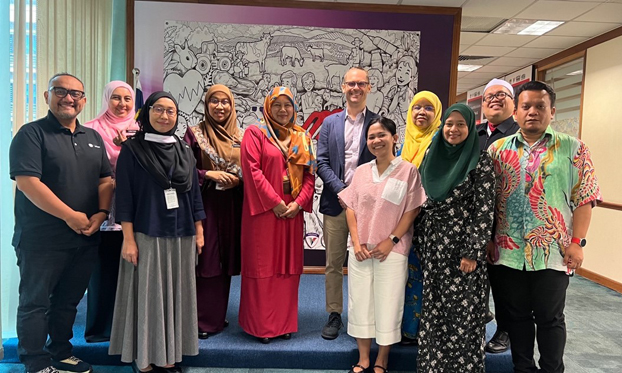 ©DVS Malaysia | ASIA AND THE PACIFIC AND MALAYSIA SMART-ASEAN mission in Malaysia facilitates progress in animal health initiatives The Strengthening Mechanism in Animal Health for a Resilient ASEAN (SMART-ASEAN) project recently undertook a mission in Putrajaya, Malaysia, from 4 to 8 March 2024, with a primary focus on preparing for the project's closing ceremony and the upcoming ASEAN Coordinating Centre for Animal Health and Zoonoses (ACCAHZ) Governing Board workshop. Led by the Department of Veterinary Services (DVS) of Malaysia, as the host country, the mission also sought to contribute to the ACCAHZ launch event scheduled for May this year. Notably, the mission included the refurbishment of the ACCAHZ office, showcasing FAO's commitment to enhancing the infrastructure and ensuring the success of both the ACCAHZ launch event and future initiatives, thanks to the Department of Foreign Affairs and Trade (DFAT) of the Australian Government for the continuous support. |
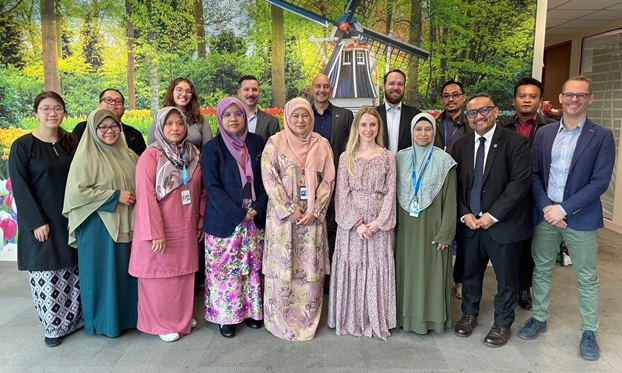 ©DVS MALAYSIA | ASIA AND THE PACIFIC AND MALAYSIA FAO-DTRA mission in Malaysia: the start of the first multi-year project in the country FAO and DTRA met with Malaysia's Ministry of Agriculture from 6 to 8 March 2024, progressing in the coordination for the implementation of the first multi-year project in collaboration with the DVS of Malaysia. This collaboration is part of a recently launched regional initiative titled "Strengthening Animal Health Systems for Biological Threat Reduction in Southeast Asia," targeting six countries, including Malaysia. The project aims to enhance regional and national capacities for preventing, detecting, and preparing for biological threats in animal populations. Key outputs from the meetings included the agreed country workplan and timeline of implementation, in alignment with national priorities and initiatives, the identification of project focal points and reference personnel, and the planning of key implementation mechanisms. Close coordination will continue in the upcoming months for finalizing the project’s approvals and the launching planned for the first quarter of 2025. |
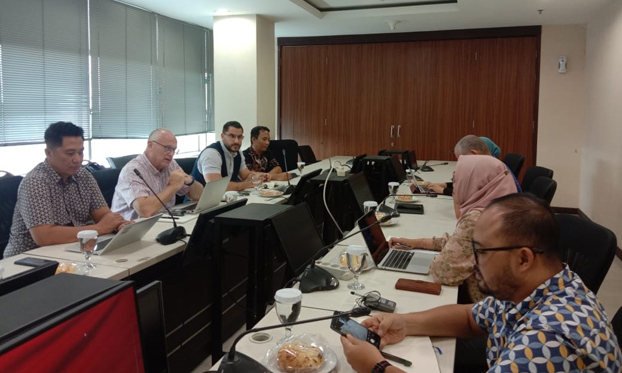 ©FAO/Gunawan Utomo | INDONESIA AND ASIA AND THE PACIFIC
Meeting on AMR control programme with the Coordinating Ministry of Human Development and Cultural Affairs |
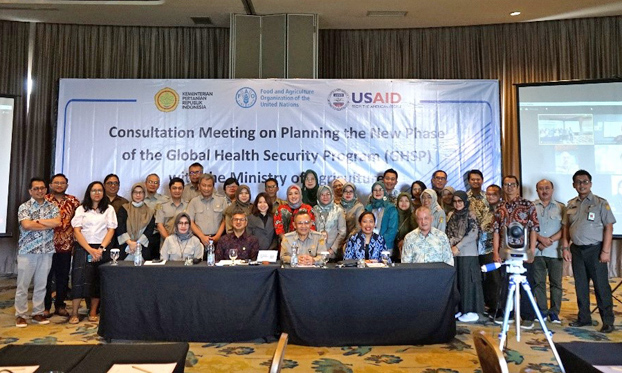 ©FAO/Satwika Movementi | INDONESIA Consultation meetings for Global Health Security Program 2023-2027 with Ministry of Agriculture and Ministry of Environment and Forestry On 4 to 9 March 2024, FAO conducted two consultation meetings with MoA and Ministry of Environment and Forestry (MoEF), respectively, on planning the new phase of the Global Health Security Programme (GHSP) 2023-2027 in Bogor, West Java. Supported by USAID, this programme builds upon the success of GHSP 2021-2023. With experts from MoA and MoEF in attendance, the meeting aimed to strengthen Indonesia's veterinary systems, focusing on mitigating risks of zoonotic diseases, emerging pathogens, antimicrobial resistance, and addressing the linkages between animals, wildlife, the environment, and human health through One Health approach. |
Learn more about our work on partnerships here.
| |
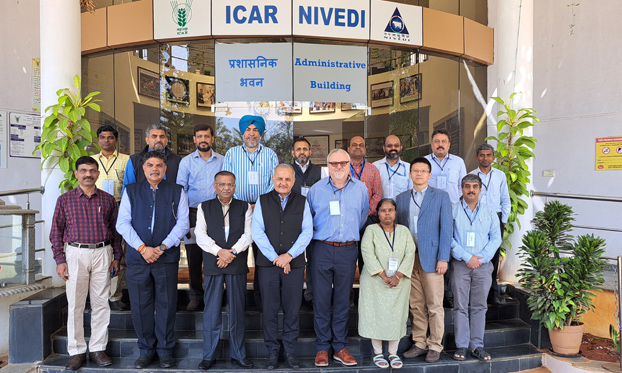 ©FAO INDIA | ASIA AND THE PACIFIC AND INDIA Strengthening veterinary epidemiology in India: Roadmap for institutionalization FAO RAP mission visited India to discuss steps and for establishment an in-service field epidemiology training programme for animal health professionals from 26 to 28 February 2024. The team, together with FAO India, engaged with the Animal Husbandry Commissioner and visited Indian Council of Agricultural Research – National Institute of Veterinary Epidemiology and Disease Informatics (ICAR – NIVEDI). The objective was to draft and finalize the roadmap for institutionalizing field veterinary epidemiology training in India. Key components of the roadmap include stakeholder alignment, tailored curriculum development, veterinarians selection and funding for sustainability. FAO India acknowledges the support of the Animal Husbandry Commissioner, Government of India, and the Director ICAR – NIVEDI in facilitating this initiative.
|
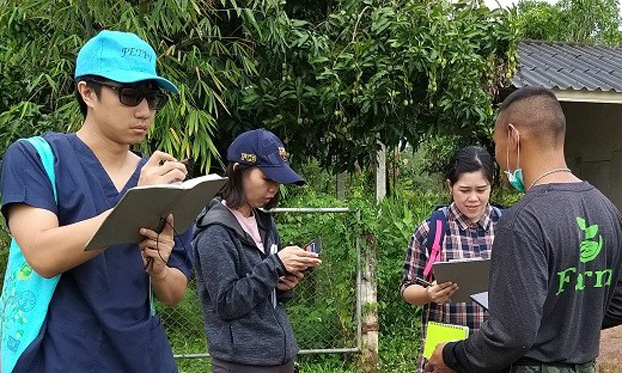 ©RFETPV | ASIA AND THE PACIFIC AND THAILAND R-FETPV trainee recruitment update With support from DTRA and USAID, the Regional Field Epidemiology Training Program for Veterinarians (R-FETPV) has initiated recruitment process for a new cohort since January. Invitations for nominations were extended to 14 countries, outlining selection criteria and the programme’s structure. 26 applications from 10 countries were received, resulting in 23 candidates being selected for interviews. An interview panel, composed of members from the Department of Livestock Development (DLD) Thailand, the hosting organization, and FAO, conducted interviews from 5 to 7 March 2024. Final selection of 11-12 trainees will be based on interview performance, study proposals and funding availability.
|
| Learn more about our work on epidemiology here. | |
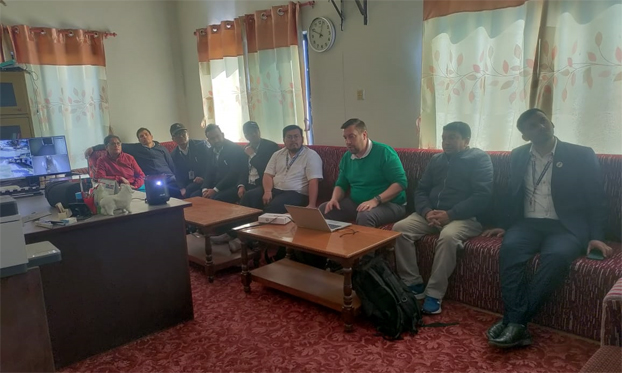 ©FAO/Surendra Karki | NEPAL AND ASIA AND THE PACIFIC FAO conducts veterinary laboratory assessment FAO, through USAID funding, conducted the FAO laboratory mapping tool (LMT) to assess veterinary laboratories in Nepal. The Central Veterinary Laboratory (CVL) and sub-national laboratories at Dhangadhi, Surkhet, Biratnagar and Janakpur were evaluated by a team of expert from FAO RAP. These assessments aim to identify the key gaps in laboratories capabilities and provide guidance for improvement. The programme was conducted collaboratively with the Department of Livestock Services, CVL and respective sub-national laboratories.
|
| Learn more about our work on capacity development of laboratory here. | |
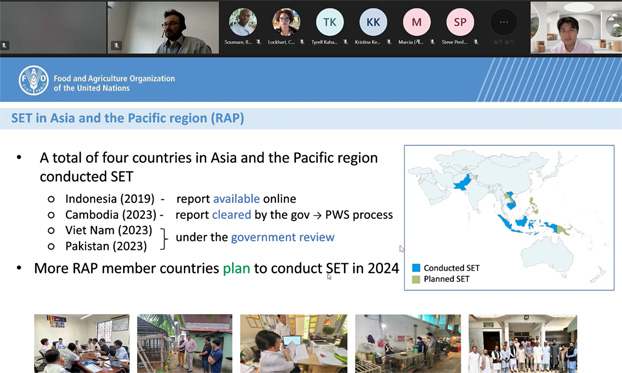 ©FAO/Mugyeom Moon | ASIA AND THE PACIFIC FAO contributes to USAID deep dive on surveillance systems evaluation FAO participated in a USAID deep dive session on surveillance systems evaluation for sustainable national capacity. FAO presented regional plans for surveillance evaluation, preliminary regional analysis tied to evidence-based capacity building plans and success story of FAO surveillance evaluation tool (SET) in Indonesia.
|
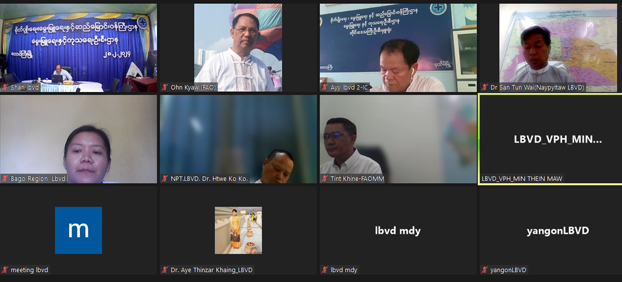 ©FAO/Ohn Kyaw | MYANMAR FAO holds virtual technical discussion with Livestock Breeding and Veterinary Department FAO conducted a virtual technical discussion with Livestock Breeding and Veterinary Department (LBVD) Myanmar on 28 February 2024. Discussions included potential activities such as avian influenza surveillance and farm biosecurity improvement. Targeted townships in four regions were also identified for proposed activities.
|
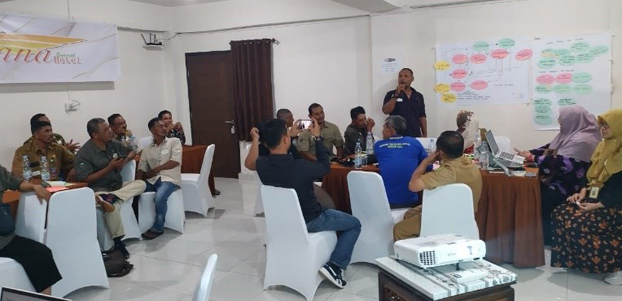 ©FAO/Wahid Husein | INDONESIA Pre-assessment for participatory disease surveillance of foot-and-mouth disease and lumpy skin disease FAO, together with MoA, conducted a pre-assessment for participatory disease surveillance (PDS) on foot-and-mouth disease (FMD) and lumpy skin disease (LSD) from 26 to 27 February 2024, in Riau province. This activity comprised a scoping visit to collect information on the current FMD and LSD situation, identify gaps and assess capacity-building needs. The event brought local government veterinary authorities, agricultural and livestock extension officers, communities and stakeholders to discuss FMD-LSD challenges and opportunities in their areas. Findings will inform the development of modules and technical guidelines tailored to identified needs. Subsequent refresher training for field officers will cover outbreak investigation, emergency response and vaccination programmes.
|
| Learn more about our work on surveillance here. | |
.jpg?sfvrsn=6200c69e_1) ©FAO/Yin Myo Aye | ASIA AND THE PACIFIC AND NEPAL Preparation for Nepal’s National Bridging Workshop (NBW) Tripartite regional and country offices held discussions on preparations for Nepal’s National Bridging Workshop (NBW) in Kathmandu from 19 to 21 March 2024. The workshop, utilizing a dynamic and interactive approach, facilitates identification of synergies, gap reviews and the development of a joint roadmap for improving efforts at the animal-human interface. Emphasis is on enhancing prevention, detection and control of zoonotic diseases, antimicrobial resistance and food safety.
|
| Learn more about our work on One Health here. | |
-sensitization-workshop.jpg?sfvrsn=cc54a070_1) ©fao/Humayra Nowrin | BANGLADESH AMR/antimicrobial use (AMU) sensitization workshop FAO and Bangladesh AMR Response Alliance (BARA) jointly organized a sensitization workshop on AMR/AMU. Held in Sylhet on 10 March 2024, the workshop engaged veterinary and medical interns and students from Sylhet Agriculture University and Sylhet MAG Osmani Medical Collage Hospital. The event, inaugurated with a call to action against AMR, featured an AMR quiz competition and an awareness campaign distributing AWaRe (access, watch, reserve) categorization materials, thanks to the USAID and UK Fleming Fund for the funding support. |
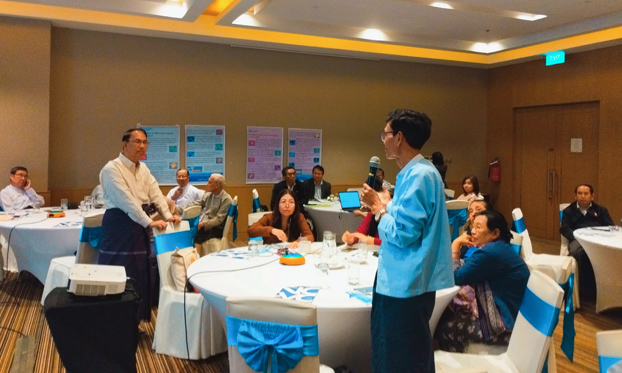 ©fao/Yin Myo Aye | ASIA AND THE PACIFIC AND MYANMAR Workshop on AMR surveillance protocol FAO, in collaboration with Myanmar Livestock Federation (MLF), held a consultation workshop on developing the AMR surveillance protocol in Yangon, from 14 to 15 February 2024, thanks to USAID. Thirty-two participants, including MLF representatives, associations, partners and experts from veterinary laboratory, food safety, wildlife and environment, provided valuable inputs. This first workshop marks the beginning of protocol development. Further steps will include data compilation, literature review and additional consultations as needed. |
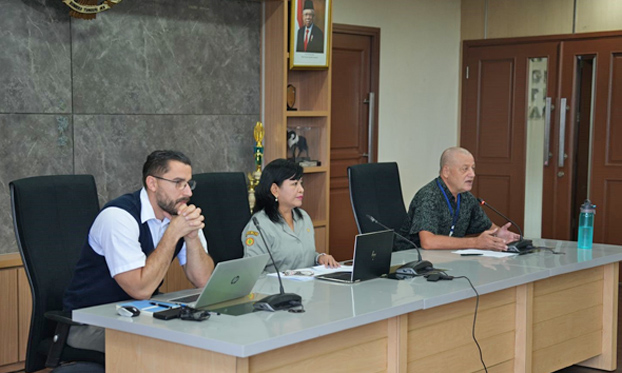 ©fao/Eko Prianto | INONESIA AND ASIA AND THE PACIFIC Workshop on private sector engagement on AMR control FAO and the Directorate General of Livestock and Animal Health Services (DGLAHS), with the support from the European Union, hosted a workshop on private sector engagement on AMR control in Indonesia on 7 March 2024. FAO RAP gave a presentation and promoted the roles of public-private partnership in combatting AMR. Thirty-eight participants from the private sector, association and government officials discussed and proposed recommendations for increasing the private sector's role and contributions to AMR control. Areas of potential partnership and collaboration were also identified to address AMR challenges. |
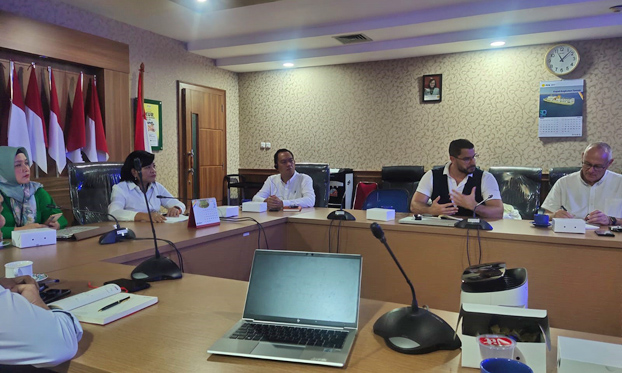 ©fao/Gunawan Utomo | INDONESIA AND ASIA AND THE PACIFIC Meeting with the Ministry of Agriculture on AMR private sector engagement On 6 March 2024, FAO Indonesia, alongside FAO RAP, held a courtesy meeting with DGLAHS. The meeting aimed to discuss the agenda for a workshop on private sector engagement in AMR, scheduled on 7 March 2024, supported by the European Union. Private sector engagement is crucial in AMR mitigation, yet their contributions to prevention efforts remain limited. Both FAO and the government expect the workshop to produce recommendations for further engagement with higher-level stakeholders in government and livestock industries through a public-private partnership approach. |
Learn more about our work on AMR here.
| |
